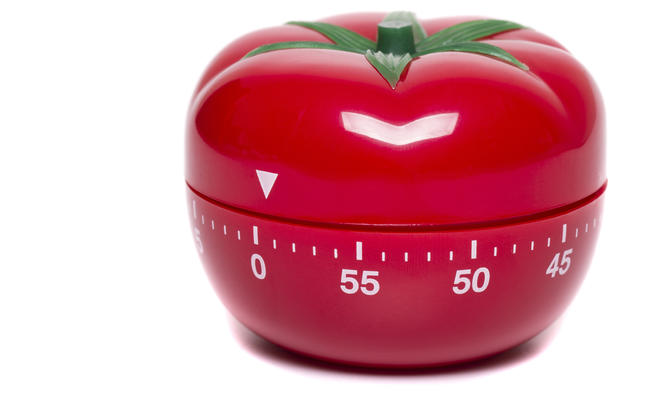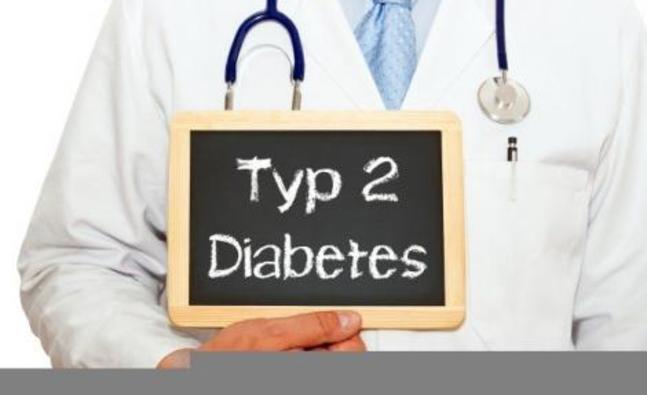The GM Diet Is Blowing Up Online, but Really: WTH Is It?
The line between choosing a legit slim-down strategy and falling for a groan-worthy gimmick is blurrier than ever lately. Take the GM Diet, which Google announced was one of the most buzzed-about diet plans of 2015. Word is it can help you lose a whopping 10 to 17 pounds in one week.
Where The Plan Came From
The diet's backstory borders on urban legend: Back in 1985, General Motors reportedly developed the GM Diet as a way to help its employees lose weight. "The diet is based on the principle that by eating only the foods in the plan, the body will burn more calories than the food provides," says Ashvini Mashru, R.D., author of Small Steps to Slim. The result is (allegedly) rapid weight loss. The people from GM who created this diet are said to have collaborated on the plan with both the Food and Drug Administration and the U.S. Department of Agriculture, but there's no hard evidence that any of this is true, says Mashru.
What You Can Eat
The diet itself is a weeklong program that involves uber-strict eating guidelines, says Mashru. Day one involves eating only fruit, except for bananas (probably because of their higher sugar and calorie content). By eating only water-based fruit (such as watermelon, cantaloupes, and apples), the uptick in fluids is said to flush out toxins and prepare your bod for the rest of the diet plan. Day two is an all-veggie extravaganza. You start out with a baked potato and butter for breakfast, which is supposed to provide the complex carbs necessary for all-day energy. Meanwhile, the unlimited veggies of any kind provide oodles of essential nutrients, like fiber, and are very low in calories.
On day three, you're allowed to nosh on both fruits and veggies (except for bananas and potatoes). And day four is devoted almost entirely to milk and bananas to make up for the lack of potassium and sodium during the first few days of the diet. On this day, you're also allowed to eat unlimited amounts of a veggie soup recipe. The same soup is allowed as often as you want for the rest of the week (cha-ching?).
Check out all of the wacky weight-loss trends throughout history:
In addition to the veggie soup, day five allows for lean beef and tomatoes—reuniting you with the lean protein you've probably been dreaming about since the start of the diet. Day six allows for beef and veggies (and veggie soup), and the final day of the diet consists of the soup, brown rice, veggies, and fruit juice. Throughout the entire diet, you're encouraged to drink as much water as you can stand (roughly 12 to 15 glasses a day) in order to aid the "detoxification" process and nix dehydration.
The Results
Let's get one thing out of the way first: Drinking more water isn't going to help your body detoxify itself any more than it's already doing. You'll just be peeing a lot.
And, sure, the GM Diet could be one of the quickest ways to shed pounds, but don't expect lasting results. "The biggest problem with the GM Diet is that its guidelines are unsustainable and unrealistic," says Mashru. "Even if you lose weight by strictly following the seven-day plan, you'll gain the pounds back once you return to your regular eating habits." That's because the weight you're losing is most likely water weight, not fat. Calorie-deficient diets, like this one, send your body into starvation mode, says Mashru. Not only does your metabolism slow in order to preserve energy, but your body instinctively stores fat instead of burning it in order to "survive."
What's worse, the drastic calorie reduction can eff with your overall health if you use the program over the long-haul. That's because it severely restricts your intake of whole grains, seafood, and dairy products, all of which contain nutrients that can contribute to a lower risk of chronic medical problems, such as cancer, heart disease, and osteoporosis, says Mashru. To top it off, by cutting out so many food groups, you're likely to experience dizziness, fatigue, muscle weakness, and headaches. Bah.
The Verdict
"The GM Diet is not a safe or sustainable way to lose weight," says Mashru. The program doesn't encourage dieters to build habits that encourage a lasting change, like exercising regularly. It also doesn't teach dieters to incorporate nutritious foods, cooking techniques, or well-balanced eating habits into their normal lifestyle, she says.
Instead of looking for a quick fix, make maintainable changes to your lifestyle and fitness routine. "Long-lasting weight-loss success is possible, but it takes a consistent, sensible approach—not detoxes, cleanses, fad diets, or special products," adds Mashru. Those small changes aren't the quickest way to see results, but last if you stick with them. No urban legend required.
-
Prevent Winter Weight Gain
The cooler weather isn’t exactly exercise-friendly, especially w
-
Consider a vegan diet to help prevent weight gain
-
Avoid unhealthy microwave foods
-
A Mother and Daughter Decided to Lose Weight Together—And Their Results Are Amazing!
A lot can change in 100 days. So when 50-year-old Cheryl Shaw and her
-
No question that quinoa will help you lose!
-
How to Lose Weight When Your Genes Are Working Against You
There are things that you’re thrilled to inherit from your mother, lik
- DON'T MISS
- How to break the food addiction
- Why almonds make the perfect slimming snack
- Carrot Fit App
- The perfect weight-loss pantry: What’s the deal with white rice?
- Pick plants to cut extra daily calories
- Key to weight loss: eat less, exercise more
- What Is Ice Cream Diet And How Does It Help To Lose Weight?
- Why you should rather drink tomato juice than orange juice
- A top reason for your belly blues
- Healthy summer fruit desserts




